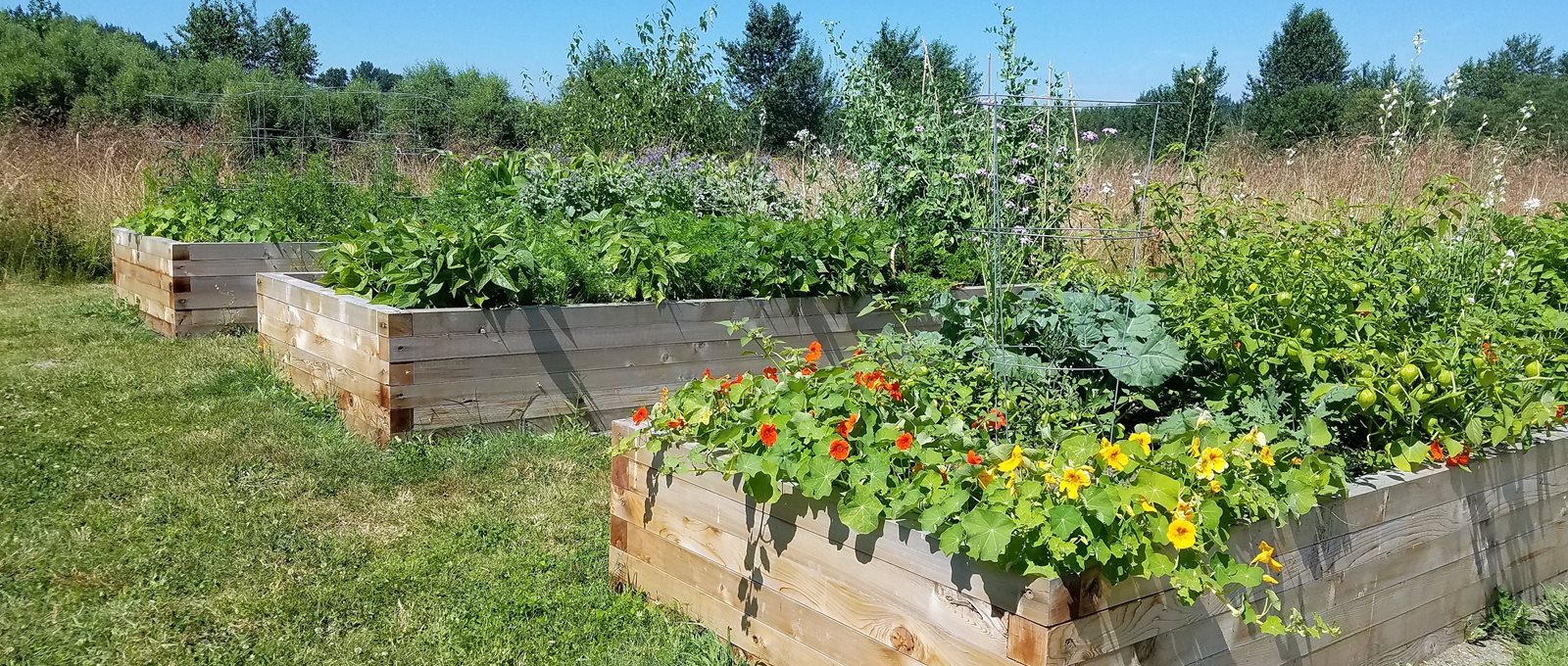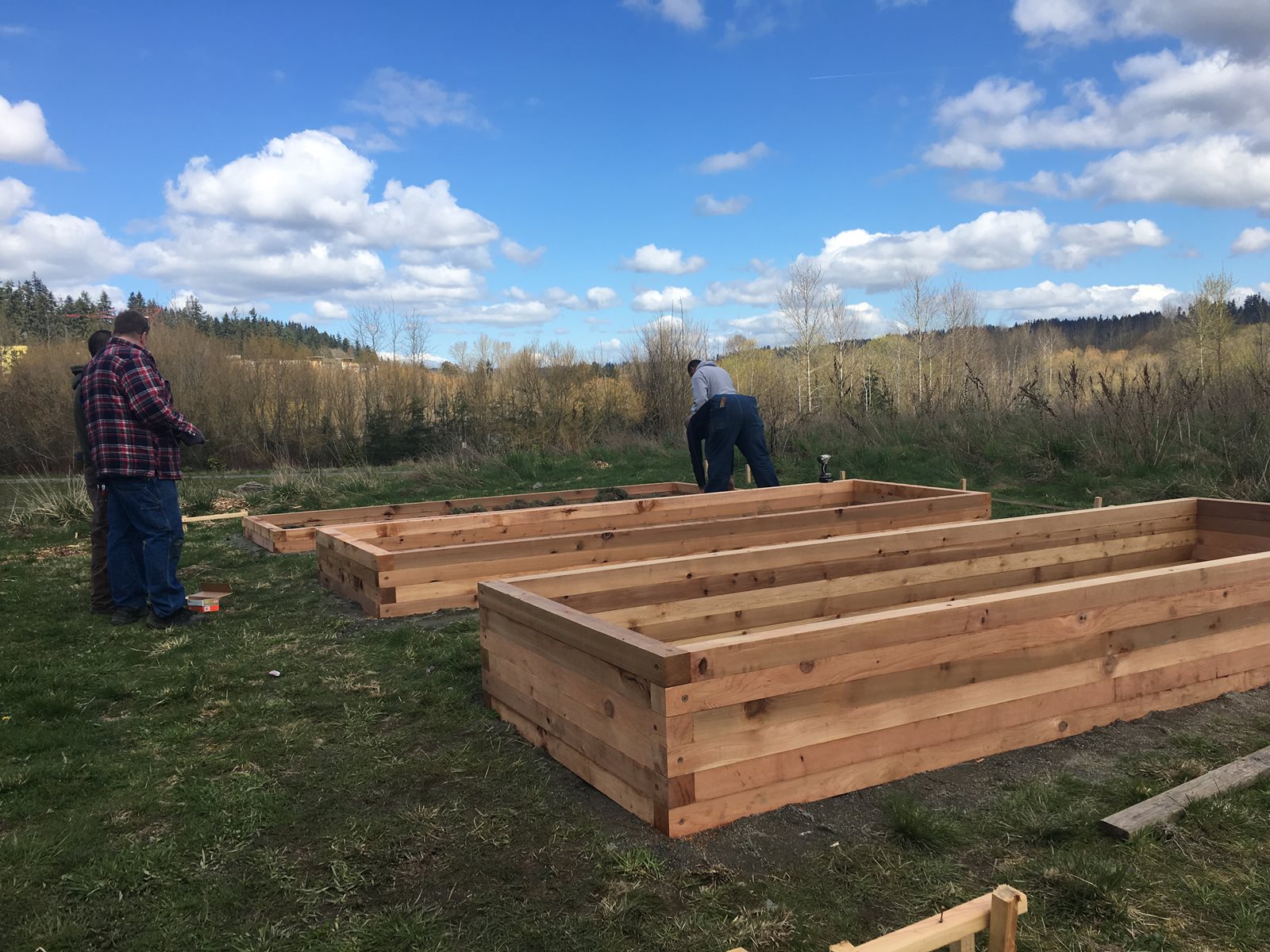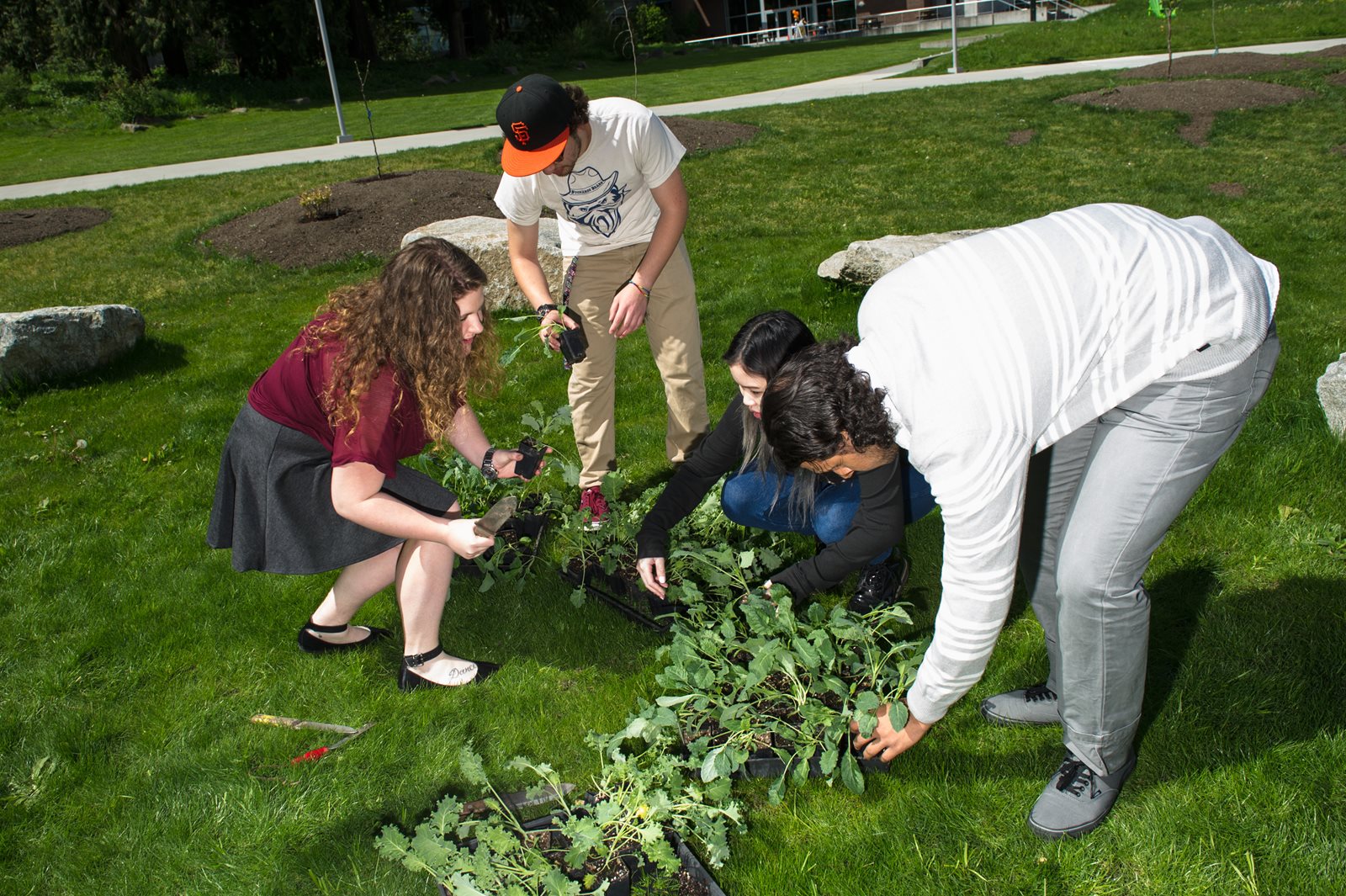
By Keiana Hadjireza
The debut of the new campus community garden will be featured at this year’s Earth Week, April 15-21, at the University of Washington Bothell.
Located on the north side of the sports fields, the garden boasts three large raised beds, right, and is designed to give everyone on campus an opportunity to experiment and learn about sustainable urban gardening. The garden was brought to fruition with the combined efforts of UW Bothell’s garden committee, facilities services and the School of Interdisciplinary Arts & Sciences (IAS).

An official garden party on Friday, April 21, is just one of the events planned for Earth Week. The student chapter of the American Society of Mechanical Engineers, for example, is also hosting a garden hackathon the same day.
“It’s important to get a more diverse set of interests and backgrounds involved in caring about the earth,” said Cassie Lubenow, sustainability coordinator for facilities services.
Sustainability and resourcefulness have long been key priorities of the university. Earth Week highlights the importance of incorporating a green routine into everyday life and bringing awareness to environmental issues, Lubenow said. “It’s a time to drop things and focus on the earth.”
Opportunities to be hands-on during Earth Week include a restoration project in North Creek forest, planting trees and vegetables on campus with the grounds team and sorting through garbage, as seen at left, to divert it from going to landfills.

Other Earth Week events focus film, art, food and entertainment, such as a musical performance by the solar-powered rock band known as Trapdoor Social.
The line-up also includes lectures and presentations on the climate and other related issues. On Monday, April 17, for example, a panel of five climate activists known as the “valve-turners” will discuss their decision to bring awareness to climate issues by shutting off five pipelines carrying tar sands oil into the United States. The talk is organized by Jennifer Atkinson, a lecturer in IAS and member of the Earth Week Steering Committee.
She cites benefits of making changes at home that impact the environment. “Reducing meat consumption can cut more carbon emissions than giving up your cars.”
Earth Week’s goal of sustainability and reducing carbon emission are closely tied to the restoration of the wetlands along the edge of campus. The wetlands served as the “centerpiece of the sustainable initiative” said Lubenow, and UW Bothell is a pesticide, herbicide and chemical fertilizer free campus.
“We have been practicing organic land care for nearly 11 years,” said Tyson Kemper, grounds supervisor. “Our leadership in this regard has inspired many other institutions and individuals in the region to do the same.”

As part of its commitment to incorporating green practices in its day-to-day operations, the University also uses solar panels to power the parking garage and the LB2 building. UW Bothell is working towards becoming climate neutral by 2050 – and Earth Week helps keep the campus community focused on that goal.
“Earth Day events have been an important platform from which the sustainability values and actions of UW Bothell can be shared,” says Kemper. “It highlights the ways in which the university advances sustainability locally, regionally and globally.”



